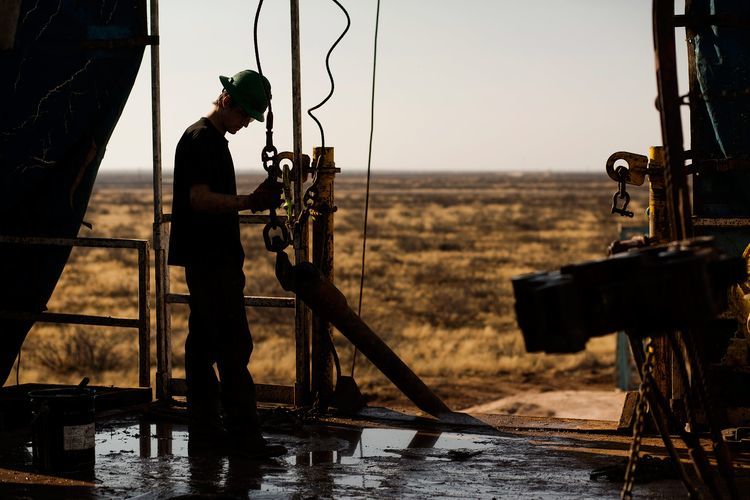
Oil fell after industry data showed U.S. crude stockpiles rose, keeping inventories at the highest seasonal level in at least 30 years as peak summer demand nears its end.
Futures slid as much as 2.2 percent in New York. Supplies rose by 4.46 million barrels last week, the American Petroleum Institute was said to report Tuesday. Government data Wednesday are forecast to show stockpiles fell last week. Iran’s oil ministry said the country hasn’t yet decided whether to join informal OPEC talks next month in Algiers following a Reuters report that the nation had confirmed its attendance at the gathering.
“We’ve got a huge oversupply of crude inventories, we’ve got an oversupply of petroleum products,” Ed Morse, head of commodities research at Citigroup Inc. in New York said on Bloomberg Television. “Today’s fall in prices is due to the API data release last night that showed a big crude build.”
Crude entered a bull market last Thursday, less than three weeks after it tumbled into a bear market. Prices surged partly on speculation that informal discussions among members of the Organization of Petroleum Exporting Countries may lead to action to stabilize the market. Iraqi Oil Minister Jabbar Al-Luaibi has asked international companies to increase output to boost national revenue, according to a statement.
West Texas Intermediate for October delivery dropped 78 cents, or 1.6 percent, to $47.32 a barrel at 9:27 a.m. on the New York Mercantile Exchange. The contract rose 69 cents to close at $48.10 on Tuesday. Total volume traded was 13 percent above the 100-day average.
U.S. Stockpiles
Brent for October settlement fell 51 cents, or 1 percent, to $49.45 a barrel on the London-based ICE Futures Europe exchange. The global benchmark crude traded at a $2.21 premium to WTI.
For a story on U.S. crude exports rising to a record, click here.
Crude stockpiles at Cushing, Oklahoma, the delivery point for WTI and the biggest U.S. oil-storage hub, increased by 417,000 barrels, the API said, according to people familiar with the figures. Nationwide supplies probably dropped by 850,000 last week, according to the median analyst estimate in a Bloomberg survey. Inventories fell to 521.1 million barrels through Aug. 12, according to EIA data.
Prices jumped yesterday after Reuters reported that Iran is sending “positive signals” it may support joint action to bolster the oil market, citing unidentified people in OPEC and the oil industry. Iran hasn’t decided whether to join any action, according to the people. A spokesman for the country’s oil ministry on Wednesday told Bloomberg that Iran’s decision to attend the meeting in Algiers could be made as late as one day before the event.
Oil-market news:
Iraq still isn’t producing as much oil as it should be, Iraqi Prime Minister Haider Al-Abadi told reporters at a press conference in Baghdad Tuesday. Saudi Arabia’s Deputy Crown Prince Mohammed bin Salman will pay an official visit to Japan from Aug. 31 to Sept. 3, according to a statement from Japan’s Foreign Ministry. Iranian Foreign Minister Mohammad Javad Zarif will visit Venezuela Friday and Saturday, President Nicolas Maduro said in his weekly television broadcast.
Recommended for you
